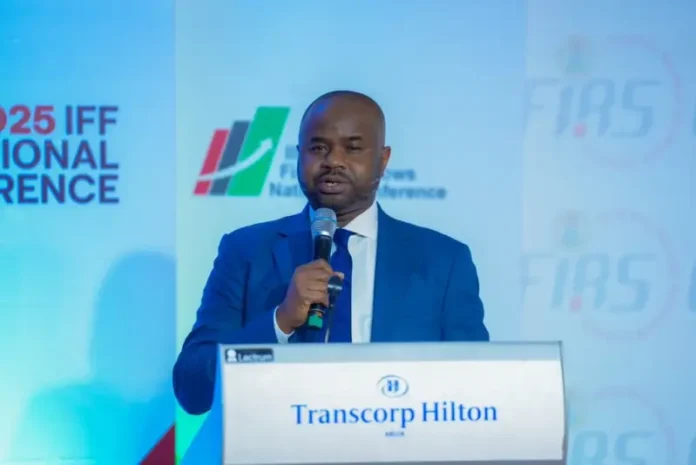By Adefolarin Olamilekan
In any society where crime and criminal activities take centre stage, it lays the foundation of economic backwardness. Regrettably, criminal activity, such as illicit financial outflow, in many countries across the globe is now a phenomenon, with over $3 trillion lost in 2024 alone via illicit funds that circulate through the global financial system, as reported by Fintech magazine Africa in 2025.
While the subject matter of illicit financial outflow occupies a prominent place in the developmental policy discourse of today, the rapid globalization, sophisticated use of tech, and digital platforms are now raising concerns, with calls on financial institutions around the world to strengthen their due diligence processes, leverage technology-driven risk assessments, and uphold transparency in financial dealings to align with international regulatory expectations, toward addressing the issue of illicit financial flows (IFF).
In the words of Kolawole and Solomon (2023), illicit financial flow has a significant influence on revenue generation in Nigeria.
More pathetic is the definition of Valentine and Emmanuel (2024), who view illicit financial flows as depriving the government at the macro level of the needed resources to provide adequate infrastructure that would better the lives of the people.
Whereas it is not a new phenomenon, especially to developing countries, illicit financial flows are draining Nigeria of trillions of Naira of potential development funds.
With a significant impact on both economic growth and development, it is no doubt a contributing factor to underdevelopment in Nigeria over time.
Nigeria is a developing country that is not alien to the issue of illicit financial flow; it has also suffered from illicit financial flow, as reported by the Global Financial Integrity (GFI) in 2021.
In recent times, the country has been grappling with illicit financial flows that have further complicated the massive developmental issues decades after independence.
Sadly, illicit financial flows reduce and even eliminate expected growth benefits and undermine the development potential in Nigeria.
As an outcome of corruption, particularly with Nigerian politicians and unscrupulous businessmen and women, among those accused of diverting funds to finance hubs in Europe, Dubai, and others, negative effects of illicit financial flows and their underlying activities are barriers to doing business and impede the competitiveness of Nigeria’s economy.
Unfortunately, the evidence of the burden of illicit financial flows in Nigeria from a political economist’s perspective is the stolen government’s financial resources needed for public good, such as education, health, and infrastructure.
Instructively, some of the channels of illicit financial flow in Nigeria, as identified by the Global Financial Integrity (GFI) in 2021, include tax evasion and avoidance, money laundering, smuggling of contraband goods, bribery and corruption, trade mispricing, and more.
This leads to the weakening of governance structures and public institutions, as well as diminished public trust in the government. Therefore, illicit financial flows in Nigeria are obstacles to economic growth, and a resort of a kind for criminal activities and a vicious cycle of corruption.
In recognition of the central threat of illicit financial flows on the Nigerian economy, and specifically on the financial institutions, the governments in Nigeria over the years have taken measures that are aimed at blocking the loopholes through which funds are ferried out of the country.
The Nigerian government in 2019 set up an Inter-Agency Committee on Stopping IFFs with ICPC (Independent Corrupt Practices and Other Related Offences, 2025)as the secretariat.
The inter-agency includes ICPC, EFCC, Central Bank of Nigeria (CBN), NFIU, FIRS, NCS, NDLEA, NEITI, FMF, and SEC. Its mission has been to promote financial integrity and transparency in consonance with the far-reaching recommendations.
That mission embraces the critical role of technology, a home-grown technology to calm the rising waves of IFFs in Nigeria. This is being developed in collaboration with NITDA and the Federal Ministry of Communications and Digital Economy.
Even with all the above efforts of the authorities, there is not much to cheer about in the mitigation of illicit financial flows in Nigeria with corrupt activities of public servants, appointed and elected officials alongside crooked businessmen and women who divert public funds.
Sectors of the Nigerian economy where the threat of illicit financial flows has serious implications are the monetary policy decisions, regulations, and the financial stability objectives of the nation’s Central Bank and others, especially in the aspect of systemic risks posed, which is not just for the non-bank financial intermediaries.
In conclusion, the issues and challenges of illicit financial flows in Nigeria, as mentioned earlier, are not new. However, what is lacking is determining how to end or reduce the effects on Nigeria’s development.
More importantly, to effectively tackle the challenges of illicit financial flows on businesses in Nigeria, the Federal government needs to strengthen the inter-agency cooperation among ICPC, EFCC, Central Bank of Nigeria, NFIU, FIRS, NCS, NDLEA, NEITI, FMF, and SEC.
As Karl Marx, the famous political economist of all time, asserts, “taking into account the possibilities of the present requires us to be attentive to the contradictory aspects of the globalized social reality.”
Olamilekan, is host of Market Report Show, ADBN Television.

